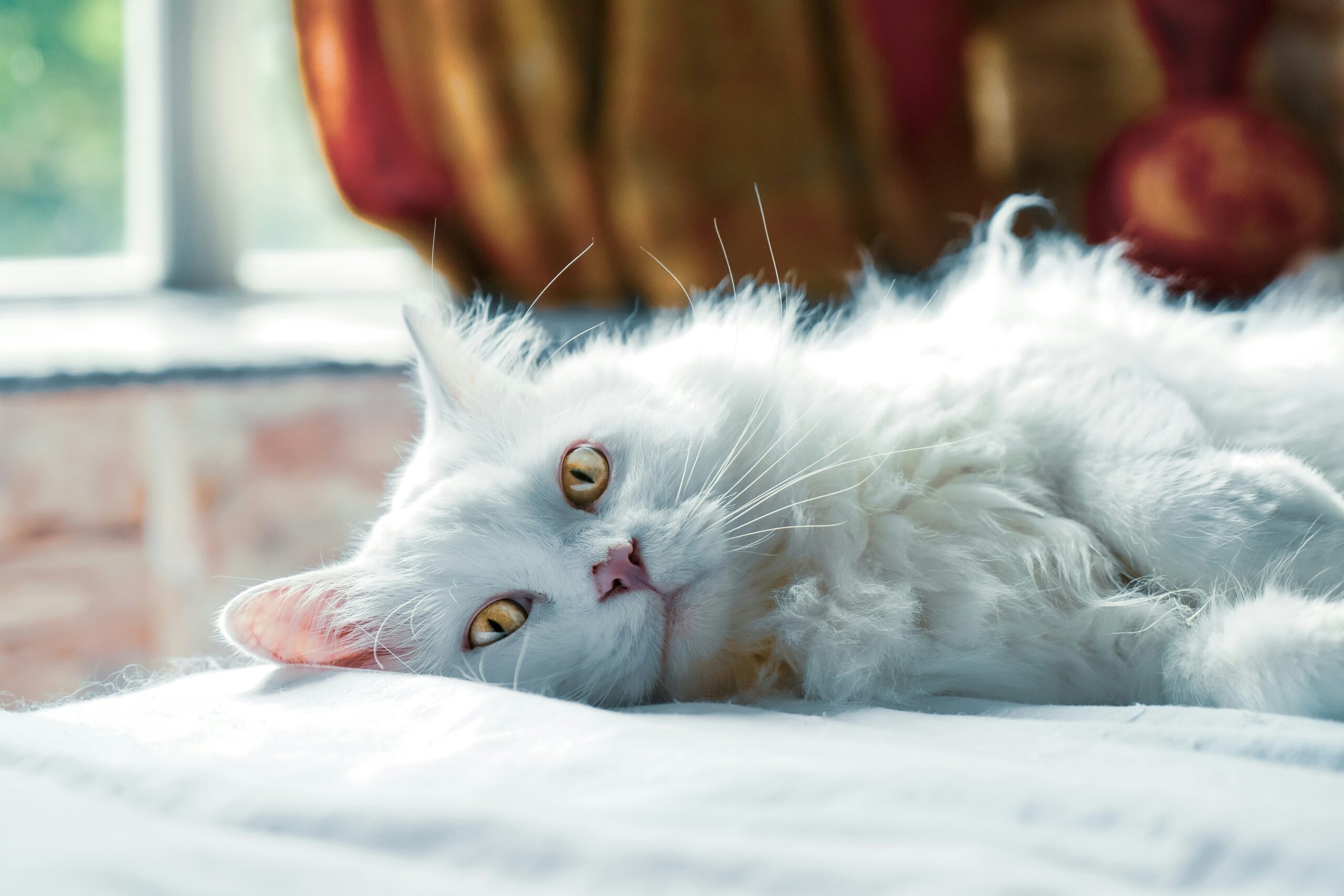Prednisolone for cats is a commonly prescribed to treat inflammatory bowel disease. If your vet has prescribed steroids, including prednisolone to treat your cat’s digestive distress, you may be unsure if you should even use it. As a holistic veterinarian, I understand your concerns about using prednisolone for your kitty. Let’s address those worries and explore holistic approaches to managing your cat’s IBD.
Table of Contents
Understanding prednisolone For Cats With IBD
Steroids (prednisolone and budesonide) are commonly prescribed to manage inflammation in cats with IBD. These drugs can be life changing for cats with IBD. Both prednisolone and budesonide can help your cat keep a healthy weight, have less vomiting and diarrhea and just feel better overall. While effective, they can come with potential side effects, including increased thirst, urination and a risk of developing diabetes mellitus. However, with careful monitoring and support, these side effects can often be managed or mitigated.
Prednisolone vs. Budesonide
Prednisolone is a steroid that works systemically to reduce inflammation throughout the body. It is often the first choice for many veterinarians because it is more reliably effective in controlling IBD symptoms. Prednisolone for cats does have the risk of causing diabetes mellitus. If diabetes is detected early in it’s course, it can often be reversed by stopping the prednisolone. On the other hand, budesonide is a more targeted option, primarily affecting the gastrointestinal tract with fewer systemic side effects. Budesonide is unlikely to cause diabetes mellitus and have any other side effects. For some cats it’s extremely effective and for others it is not a strong enough anti-inflammatory. Both medications have their place in treating IBD, and the choice between them depends on your cat’s individual needs and response to treatment.
Exploring Holistic Alternatives
In addition to steroids, there are various holistic treatments to consider for managing your cat’s IBD. Specialized diets, rich in easily digestible proteins and low in common allergens, can provide relief for sensitive stomachs. For many kitties a novel protein diet can help control symptoms and avoid the use of steroids. CBD has also shown promise in reducing inflammation and discomfort in cats with IBD. Probiotics and other supplements can help restore balance to the gut microbiome, supporting overall digestive health.
A Holistic Approach to Vomiting and Diarrhea Course
If you’re eager to learn more about holistic approaches to managing your cat’s digestive issues, consider enrolling in my course, A Holistic Approach to Vomiting and Diarrhea. This comprehensive program covers dietary recommendations, natural supplements, and lifestyle adjustments to support your cat’s digestive wellness.
Consultation with Dr. Angie
If you feel overwhelmed or uncertain about your cat’s treatment plan, I’m here to help. Book a video consultation with me, and together we can create a personalized plan to address your cat’s specific needs and concerns.
In conclusion, while steroids may raise concerns for cat parents, they are just one piece of the puzzle in managing IBD. With a holistic approach that considers diet, supplements, and lifestyle adjustments, we can work together to support your cat’s digestive health and overall well-being.
With love,
Dr. Angie



My cat had a stroke like event on September 14 and we did five days of antibiotic with clava mocks and now three weeks later we are trying prednisalone to see if it will help with possible information as they feel there may be a brain tumour. The event affected her walking although that has improved but now the big problem is difficulty or reluctance to eat and possible difficulty swallowing. She was 10 lbs. 8 oz. and now is under 9 pounds and that’s since 14 September. We went to a specialist vet to see about getting an MRI to get a diagnosis to differentiate between a tumour and some other situation but it was $9100 and we did not go ahead with it because we did not want to put her through a possible brain surgery or chemo. The big problem as I say now is that she’s not wanting to eat and I’m just wondering what can we do?
Hi Barb, I’m so sorry to hear about your kitty. I imagine this has felt really scary and difficult. And, we completely understand and respect declining the MRI, especially at $9100. Dr. Angie would love to support you and your sweet girl with a video consultation to discuss options for helping to increase her appetite. You can access her availability here
Sending so much love, JoJo, Veterinary Nurse